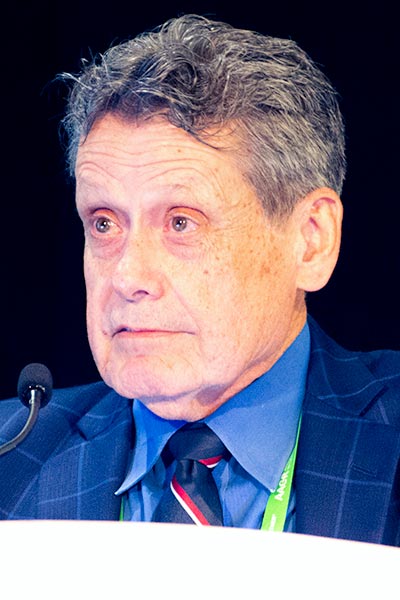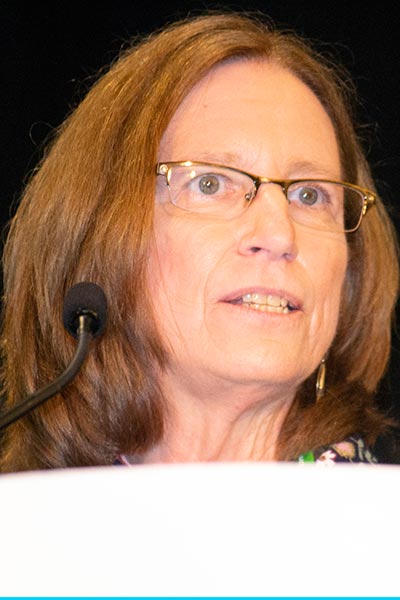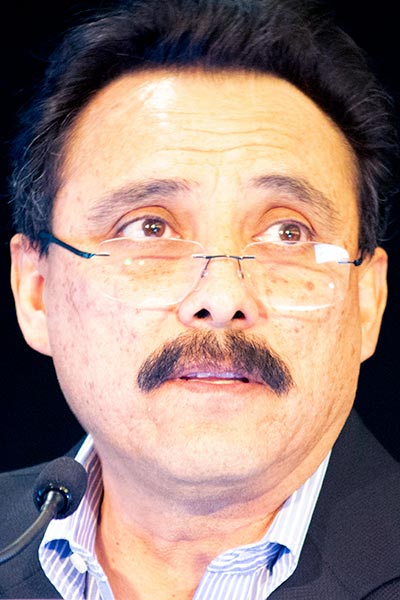AACR forms Trust in Science Task Force to help build public trust
The AACR recently formed a Trust in Science Task Force to help catalyze efforts to build public trust in science. The task force is committed to creating an ecosystem of shared value through collective impact to improve cancer research and care by developing policies and practices that promote societal trust in science and cultivates diversity as an ethos of the AACR, according to William S. Dalton, MD, PhD, of M2Gen, a national biotechnology subsidiary of the Moffitt Cancer Center.

Dalton discussed the new task force during the Trust in Science Forum on Monday, April 11, during the Annual Meeting. The session can be viewed on the virtual platform by registered meeting participants through July 13, 2022.
“There is no one leader in this overall effort of creating trust in science,” he said. “The AACR is an engine behind the overall effort, but we must come together from various sectors to develop a common agenda and achieve this goal.”
Leaders in the shared ecosystem should include representatives of multiple stakeholders: providers, policymakers, payers, pharmaceutical companies, research institutions, the National Cancer Institute, and patient advocates. Members of these groups and more were invited to join the AACR task force, Dalton said.
The task force has three primary objectives:
- Improve communication by building a system (social platform) to communicate to all stakeholders, including patients and populations at risk, to promote trust in science by addressing their questions and countering misinformation
- Improve health equality and equity, especially for underserved patient populations, by forming patient participatory models and integrating new technologies to maximize patient benefit and access to clinical trials
- Cultivate diversity as an ethos in the scientific enterprise and workforce
“It ain’t gonna be easy. I believe this will be perpetual. This will never stop,” Dalton said. “We will improve, but this is something that needs continuous diligence for us to truly succeed in building trust in science.”

Dalton was joined in the session by Patricia A. Spears, a two-time cancer survivor and patient advocate at the University of North Carolina, Chapel Hill. Spears recommended that the Trust in Science Task Force focus on three areas to help build trust among patients.
First, multiple perspectives are needed, and all perspectives should have equal weight, she said.
“Perspective matters and context matters when creating an ecosystem for this project,” she said.
Building trust will also require a shared understanding of what trust is, Spears said. She outlined several factors that could influence an individual’s trust of science, including television shows, news programs, social media, friends and family, and personal experience.
“A lot of times, we may see that a patient doesn’t trust the system, but it can’t only be a patient problem,” Spears said. “Institutions have the responsibility to be trustworthy.”
Spears also emphasized the importance of communication.
“Communicating with the public is not easy and it doesn’t come naturally to everyone,” she said. “It’s important for every researcher and scientist to talk about their science, and to be taught best practices for doing that.
“The public isn’t hearing the truth in science as much as hearing pseudoscience, misleading headlines, anecdotes, and mis/disinformation,” she continued. “There’s a lot of information out there, but not necessarily the information that will lead the public to trust science.”
Scientific information needs to be communicated to the public from trustworthy sources, and it must be clear and understandable, she said.

Jesse N. Nodora, PhD, Moores Cancer Center at the University of California San Diego Health, discussed the need for scientists to engage their communities and to improve how they go about it.
“Language and specific words make a huge difference in engendering trust,” Nodora said.
It’s important to be conscious of historically loaded or charged words, and to build consensus definitions for concepts like trust, science, health equity, health equality, and diversity, he said.
“How we treat these words is important. There are different perspectives and definitions depending on how you are looking at these words,” Nodora said.
More from the AACR Annual Meeting 2025
View a photo gallery of scenes from Chicago, continue the conversation on social media using the hashtag #AACR25, and read more coverage in AACR Annual Meeting News.

